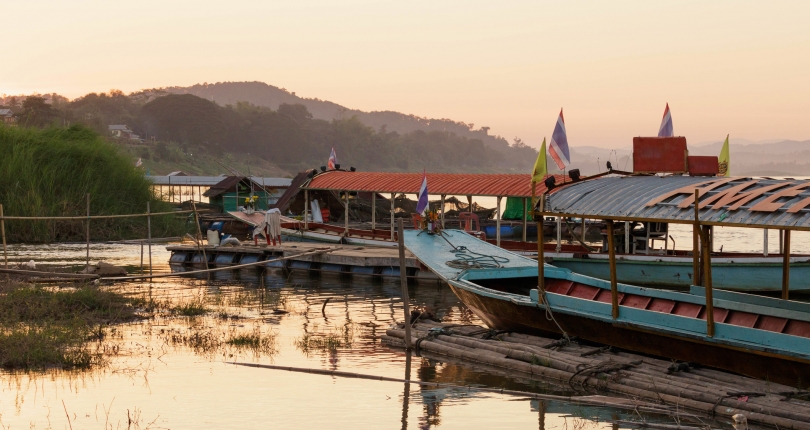What are the critical lessons on knowledge co-production for the Mekong Region: Key points from experts in Chulalongkorn University
Knowledge co-production allows for the collaborative generation of knowledge and expertise among many actors, ranging from academics to local communities. This is now viewed as essential for addressing many complex environmental challenges, especially related to water resource management and regional security in the Mekong region.
How can a collaborative knowledge production approach help in the Mekong region? Experts who attended a recent seminar on knowledge co-production hosted by the Chulalongkorn University Social Research Institute (CUSRI) gave their perspectives.
What is knowledge co-production?
A collaborative research model known as “co-production of knowledge” may include a range of stakeholders, including scientists, stakeholders, practitioners, managers, and policy experts. It involves power sharing, with researchers and stakeholders collaborating on all study aspects, from agenda development to interpretation and use of the results. Knowledge co-production has advantages over traditional research methods but takes more time and budget. It also depends on several other essential elements, including efficient communication, true power sharing, confidence, and respect for different areas of expertise.

Dr. Eakpant Pindavanija from CUSRI said, “We depend on academia to produce knowledge. This means that academia may also come to monopolize knowledge. However, when [we] want to address issues or search for information, sometimes [we] don’t really need academic experts to solve all the issues every time; other perspectives and experts are equally important.”
Co-produced knowledge matters, but [we] need to re-consider and understand how we obtain the knowledge from different political, economic, and social dimensions. We need to think about our approach … how we obtain, create, acquire, and provide some accuracy of the knowledge from those who are not academic. While we collaborate, we also need to provide a more accurate understanding (Dr. Eakpant Pindavanija).
Similar thoughts were voiced by Pakorn Lertsatienchai, Deputy Director of Academic Affairs and Social Outreach of CUSRI.
He said, “Co-produced knowledge is the way we learn from local people and exchange ideas. For example, local people may know more about ecology and their own environment. They are the grassroots experts who know about their own farms, rivers, and livelihoods. This is when scientists need to help and support them to get more in-depth on research methods that could be used to provide research findings to policymakers.”
Challenges in co-producing knowledge
Encouraging successful collaboration among varied stakeholders to address complex water-related development issues is a challenge in the co-production of knowledge in the Mekong region. Due to fragmented decision-making, a lack of data, and differing degrees of skill among project developers, the region needs help managing shared water resources and achieving sustainable development.
The region needs to improve in increasing knowledge co-production to address water-related issues successfully. This includes coordinating actors and finding conflicts of interest, funds, and resources, especially between upstream and downstream actors.
Pakorn Lertsatienchai said, “First, trust between local people and researchers is needed. Access to local voices matters, but sometimes, making people trust us is far beyond being inclusive. Building trust requires time.
The second is data reliability, so locals must collaborate with scientists to produce more reliable and accurate data research.
The third is emotional expression. Researchers must know how to put emotion and narrate a good story to attract policymakers with their findings. Telling good stories based on our research is essential. They have to put more emotion into reaching a broader public audience rather than provide research within their circles.”
Moving forward
The Mekong is a complex region facing many challenges in sustainable water management from the upper to the lower basin. Both experts suggested that the region needs more “collaboration and continued work” to address these complex environmental challenges.
Mekong countries can benefit from diverse perspectives, expertise, and data sharing by engaging in knowledge co-production. This will lead to more informed decision-making processes and effective policies that consider all stakeholders' interests.
We need to understand how we can bring local perspectives to the top policy levels (Pakorn Lertsatienchai).
*Photo 1: Mekong River landscape. Photo: JanJutamas / Getty Images.
*Photo 2: All panelists at the international seminar: “Making social research matter: how co-production of knowledge can create social transformation in the age of radical disruption.” Photo: Variya Plungwatana / SEI Asia.

 By
By

 Read more about SUMERNET
Read more about SUMERNET
